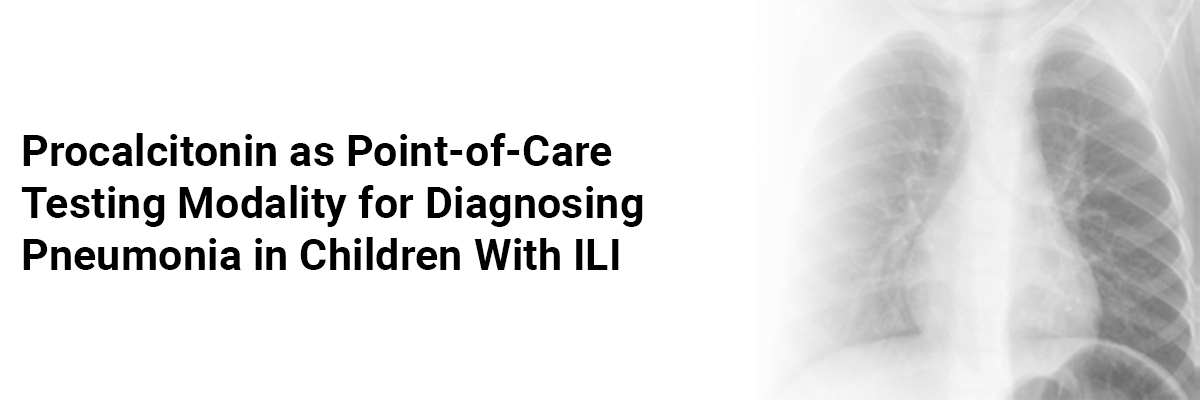
 IJCP Editorial Team
IJCP Editorial Team
Procalcitonin as Point-of-Care Testing Modality for Diagnosing Pneumonia in Children With ILI
A new study aimed to assess the effectiveness of procalcitonin (PCT) as a point-of-care test for screening radiographic pneumonia in children with influenza-like illness (ILI) and prolonged fever.
This prospective cohort study included 185 children between 3 months and below 18 years of age, with ILI and fever lasting > 4 days––seen at a pediatric emergency department during the 2020 flu season. Point-of-care PCT testing was conducted, and a chest radiograph (CXR) was performed for patients with PCT > 0.5 ng/mL.
It was found that 24.9% of patients had PCT values > 0.5 ng/mL – leading to CXR orders for all but one case. Among those with elevated PCT, 31.1% had radiographic pneumonia – all with PCT > 0.7 ng/mL. Contrastingly, 75.1% of patients with PCT ≤ 0.5 ng/mL (98.6% of this group) were managed as outpatients with symptomatic treatment. Only two cases in this group required CXR, both unremarkable, and no radiographic pneumonia was diagnosed at follow-up.
From the results, it was inferred that procalcitonin is a valuable biomarker for guiding the decision to perform a chest radiograph in children with ILI and prolonged fever – potentially reducing unnecessary radiation exposure. PCT is a valuable point-of-care tool for guiding CXR indications in children with ILI and fever > 4 days, aiding in avoiding unnecessary radiation exposure. Introducing point-of-care PCT testing in pediatric emergency departments could enhance the management of suspected pneumonia cases and provide a quick and efficient approach.
Source:Hernández-Bou S, Trenchs V, Guirado C, Castrillón I, Luaces C. Indian Pediatrics. 2024 Jan.

IJCP Editorial Team
Comprising seasoned professionals and experts from the medical field, the IJCP editorial team is dedicated to delivering timely and accurate content and thriving to provide attention-grabbing information for the readers. What sets them apart are their diverse expertise, spanning academia, research, and clinical practice, and their dedication to upholding the highest standards of quality and integrity. With a wealth of experience and a commitment to excellence, the IJCP editorial team strives to provide valuable perspectives, the latest trends, and in-depth analyses across various medical domains, all in a way that keeps you interested and engaged.




















Please login to comment on this article